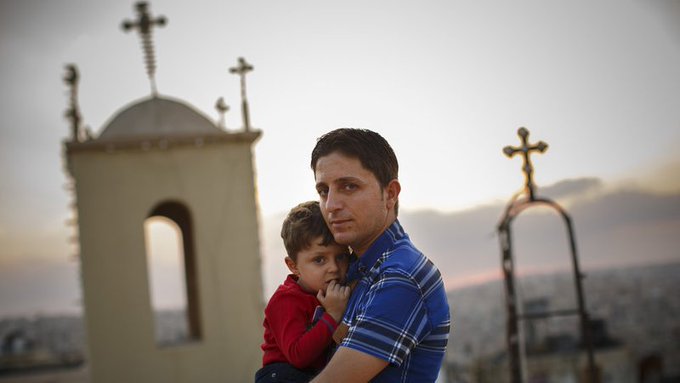
Recent legislation proposed by the US Congress suggests that an independent Nineveh Plain homeland for Iraq’s religious and ethnic minorities is on the horizon. On September 9, Rep. Jeff Fortenberry, R-Neb., introduced a bipartisan Congressional resolution from the House Foreign Affairs committee in support of a safe haven province in a northern portion of the country. The bill hopes to ease stress on Iraq’s troubled minority communities, who have suffered extreme persecution at the hands of the black-clad ISIS fighters since 2014 and various extremist groups beginning with the US-led invasion in 2003.
The proposed legislation shows support for a decentralized Iraq with a northern Nineveh Plain region, consistent with the desires of its indigenous peoples. This land, northeast of the city of Mosul, will be designated as a safe haven province for Iraq’s persecuted religious minorities, including Christian Assyrians, Shabaks, Turkmen, and Yazidis—all groups native to the area. Assyrians are said to make up approximately 50 percent of this population. The proposed province harkens back to a not-so-distant past when Iraq was once one of the Middle East’s most diverse countries with a ripe mosaic of faiths and ethnicities including Jews, Mandean Sabeans, Arameans, Baha’i, Kaka’i, and others.
The bill, authored by Rep. Jeff Fortenberry in collaboration with the Philos Project, In Defense of Christians, and theInstitute for Global Engagement, has bipartisan support and is the United States’ next step after their recognition of anIslamic State-perpetrated genocide against minorities.
“Christians, Yazidis, and other ethnic and religious minorities have been slaughtered and driven from their homes by ISIL’s horrific genocide,” Rep. Jeff Fortenberry said at a In Defense of Christians convention in Washington early this month. “One next step must be the re-securitization and revitalization of the Nineveh Plain, allowing the repatriation of those who had to flee.”
The Philos Project Executive Director Robert Nicholson said legislation was inspired by minority voices on the ground and throughout the diaspora. Nicholson said the future of Iraq is very uncertain without effective strategies on decentralizing power in a post-ISIS landscape. Despite many Western efforts to resettle Iraq’s withering Christian community in the West, Nicholson says many have voiced the desire to stay and rebuild their ancient communities. “It reflects the Assyrian desire as a people and as Christians to not sacrifice their ancient community and the presence of Christianity in Iraq,” Nicholson said.

Christians in Iraq are one of several minority groups that will benefit from the Nineveh Plain homeland
This step also hints at the United States’ potential strategic plans for encouraging decentralized power among Iraq’s various regional communities. Rep. Jeff Fortenberry stated that the resolution follows on the government of Iraq’s own initiative of January 2014 to create a Nineveh Plain region in hopes of restoring an ancestral homeland to its suffering minority communities.
Minorities in Iraq have faced longstanding persecution prior to the brutal ISIS takeover of large swaths of territory in the summer of 2014. Prior to 2014, violence against religious and ethnic communities in Iraq took form in targeted killings, attacks on religious sites, political disenfranchisement, internal displacement, and discrimination in accessing public services. Minority women are considered to be the most vulnerable swath of Iraqi society, according to a 2010 report by Minority Rights Group International, and often are denied basic rights to express their religious and ethnic identity.
The proposed legislation offers a counter to the instability and power-grabbing that may inflict Iraq in a post-ISIS vacuum, and a new path for the protection of minorities in Iraq. Beyond ISIS, the Iraqi government has been unable to provide security and a decent life for minorities. The legislation offers one last hope at reviving Iraq’s beleaguered minority communities whose members have either abandoned the country, or are displaced.




























